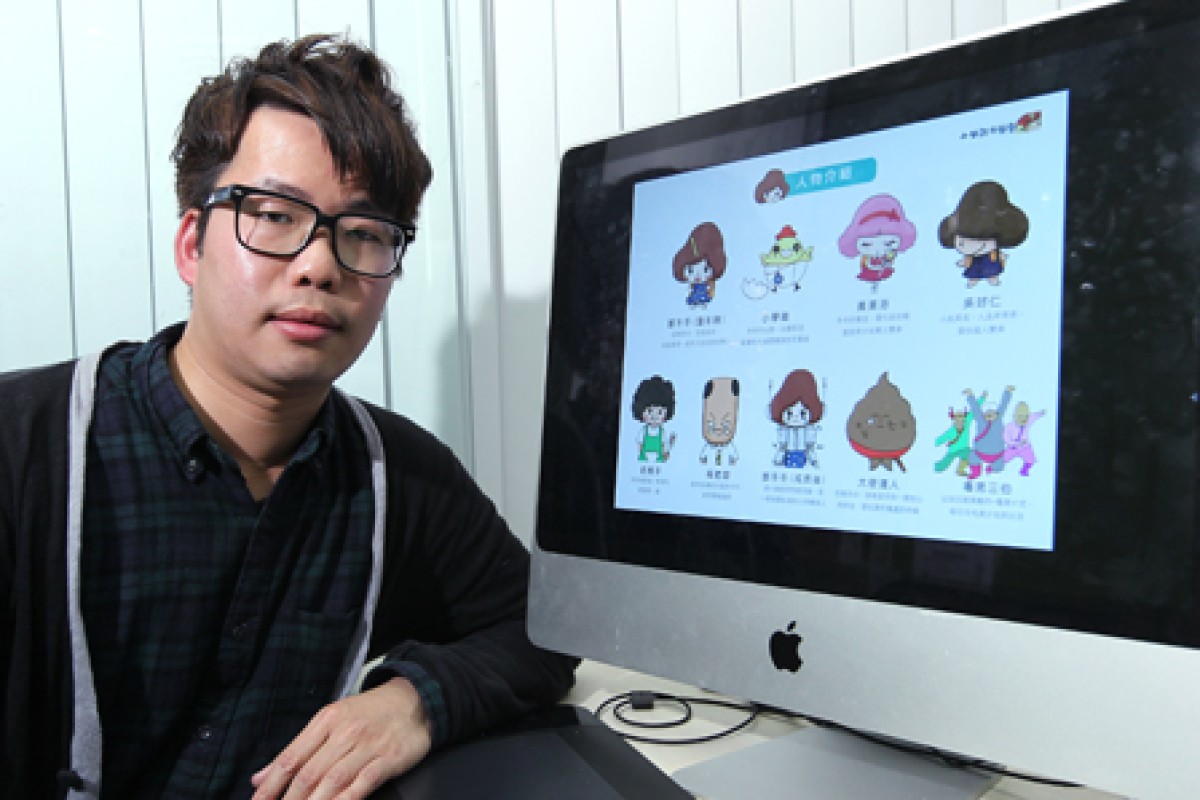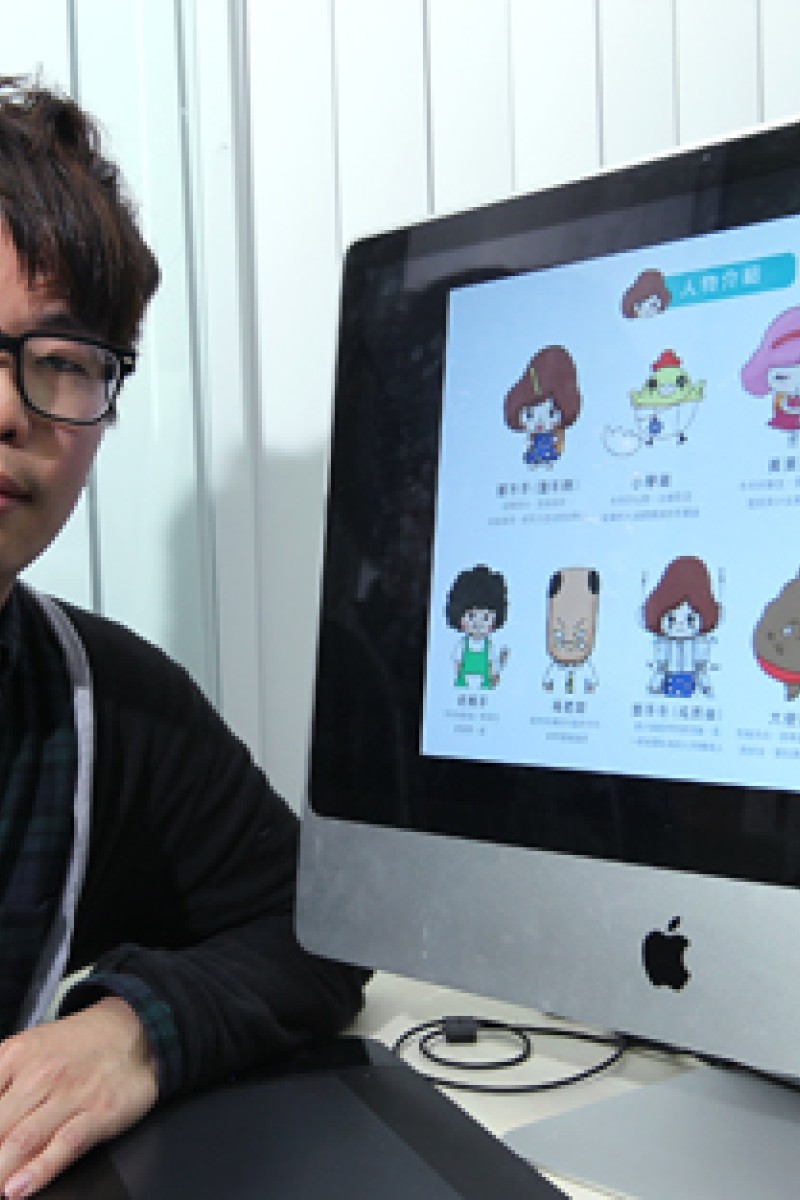 Illustrator Harry Wong created his comic series to explore how society has changed.
Illustrator Harry Wong created his comic series to explore how society has changed.Many local children are labelled "primary chickens" because of their overdependence on parents and inability to get along with others.
These situations caught the attention of freelance illustrator Harry Wong who created the Primary Chicken School comic series to express his concerns about changes in society.
The comic describes the life of a little girl, Dong Dong, who has a happy childhood watching cartoons, racing model cars and collecting trading cards. "Those are the activities I enjoyed growing up. Kids nowadays also enjoy the activities that I used to, but the 'feel' is totally different. I think the way today's kids have fun says a lot about what leads them to become 'primary chickens'," says Wong.
Lack of human interaction in the way today's kids play has created "primary chickens" who do not know how to get along with others or who depend on their parents to do everything, according to Wong.
"Back in my day, I went to toy shops in public housing estates to race model cars with friends. There was human interaction when we played with others; but now kids just race cars on their video games," says Wong. "It is the same with collecting trading cards. I used to buy cards one by one from the slot machine. I never knew what card I was going to get and I would have to trade duplicates with my friends in order to get a full collection. Now kids simply buy the entire set of cards from stores. It's nice that they get what they want, but they miss out on the process of interacting with others."
Wong pointed out that children nowadays tend to be impatient and take things for granted because of technology. "People born in the 1980s will remember the excitement of staying up late to catch an episode of Dragon Ball. Today's kids also love watching cartoons - and with just a click on the computer, they can watch all episodes, whenever and wherever they want. Resources and information come really easily, but kids do not treasure what they have," he says.
Wong originally created the comic for local readers, but to his surprise, it became popular on the mainland. The comic was distributed through the App Store, and since its launch in October 2010, it has recorded more than 100,000 downloads, more than half from mainlanders.
"In my comics, I want to remind people of the fun we had and the way we enjoyed life. I guess the feeling of enjoying life is being able to touch people across different cultures, which helps my comics reach people outside Hong Kong. Readers need not understand every detail ... they simply need to feel for themselves what life is," Wong says.
